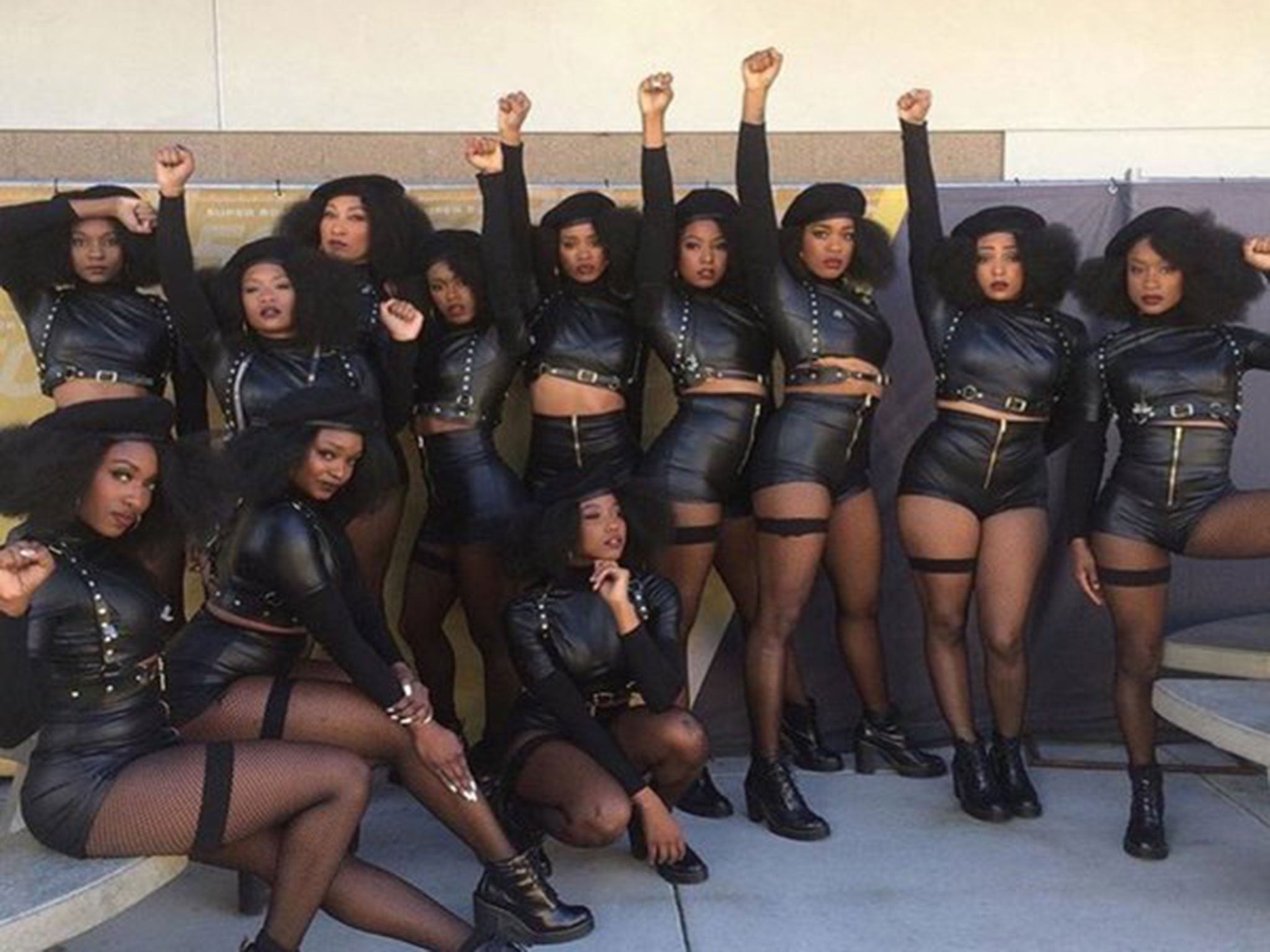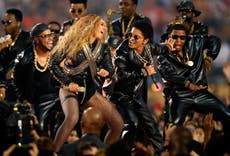The Independent's journalism is supported by our readers. When you purchase through links on our site, we may earn commission.
Beyonce's 'bootylicious' sexualisation of black women isn't inspiring - and her politics leave a lot to be desired
The Black Panthers were a Marxist revolutionary organisation who believed capitalism would always oppress black communities. They would have balked at their image being used at the Super Bowl


For days now there has been praise (and condemnation) pouring out for Beyonce's Super Bowl half-time show performance and her boldness in making statements on race on such a mainstream stage.
After all, it is rare to see Black Power salutes and artists singing how they love their “negro nose” on such a platform. However, I have to confess that I watched the half-time show and almost missed the political stance entirely, wrapped as it was in the “bootylicious” over-sexualisation of black women that we have come to expect from Beyonce.
Never before has so much been made over a one and a half minute performance, with everyone so quick to embrace a performance that was the epitome of style over substance.
In October it will be 50 years since the formation of the Black Panther Party for Self Defense by Huey P Newton and Bobby Seale in Oakland, California. This is an important anniversary to mark because the Panthers provided a radical alternative to the politics of mainstream acceptance.
In fact, the Panthers were a Marxist revolutionary organisation who believed that capitalism would always oppress black communities. There are few less appropriate venues to pay homage to the party than in the pinnacle of consumerism that is the Super Bowl.
The role of women in the Panthers has also often been glossed over, with a focus on the armed “brothers from the block” who engaged in battles with the police. The Panthers also received many accusations of sexism, made worse when Kwame Ture (then Stokely Carmichael) was quoted as saying that the only place for women in the movement was “prone”.
The scantily clad, booty-shaking salute to the Panthers from Beyonce sadly played into many of those ideas of a woman’s place as “decoration” in the struggle. In truth, women were a central part of all of the Panthers’ work, including armed defence, the community programmes and leadership.
Part of the reason for the amount of praise for the performance is because this is not something people expected from Beyonce. In the past she has received a lot of criticism for her lack of politics and her perceived negative representation of black women, in particular after she faced accusation of skin lightening for promotional purposes, which were strongly denied.
We are in an era where mainstream artists are keen to protect their brands and not to alienate white audiences. This has not always been the case, however, and there is a long history in both the US and the UK of black artists playing a key role in political movements. The best example, with regards to Beyonce, would be Aretha Franklin who publicly supported the Panthers by providing bail money in the high profile case of Angela Davis.
It speaks volumes that Beyonce has caused such a stir from a symbolic gesture, but I fear that this “quick click” generation is getting the shallow politics we deserve.
The issues that face black communities worldwide are serious and entrenched. #BlackLivesMatter has called attention to some of the worst abuses of police power in the US, but these represent the tip of the iceberg in regards to deeply rooted racial inequalities. It is not enough to try to find pride and comfort in symbolic gestures; we need to work to rebuild organisations and politics of resistance.
With their considerable wealth and appeal, Beyonce and her husband Jay Z – who were once reported to have bailed out #BlackLivesMatter protesters themselves - could play a major role in developing a politics of resistance.
However, the test of Beyonce’s politics will be what she does now, because one half time show performance does not make a revolution.



Join our commenting forum
Join thought-provoking conversations, follow other Independent readers and see their replies